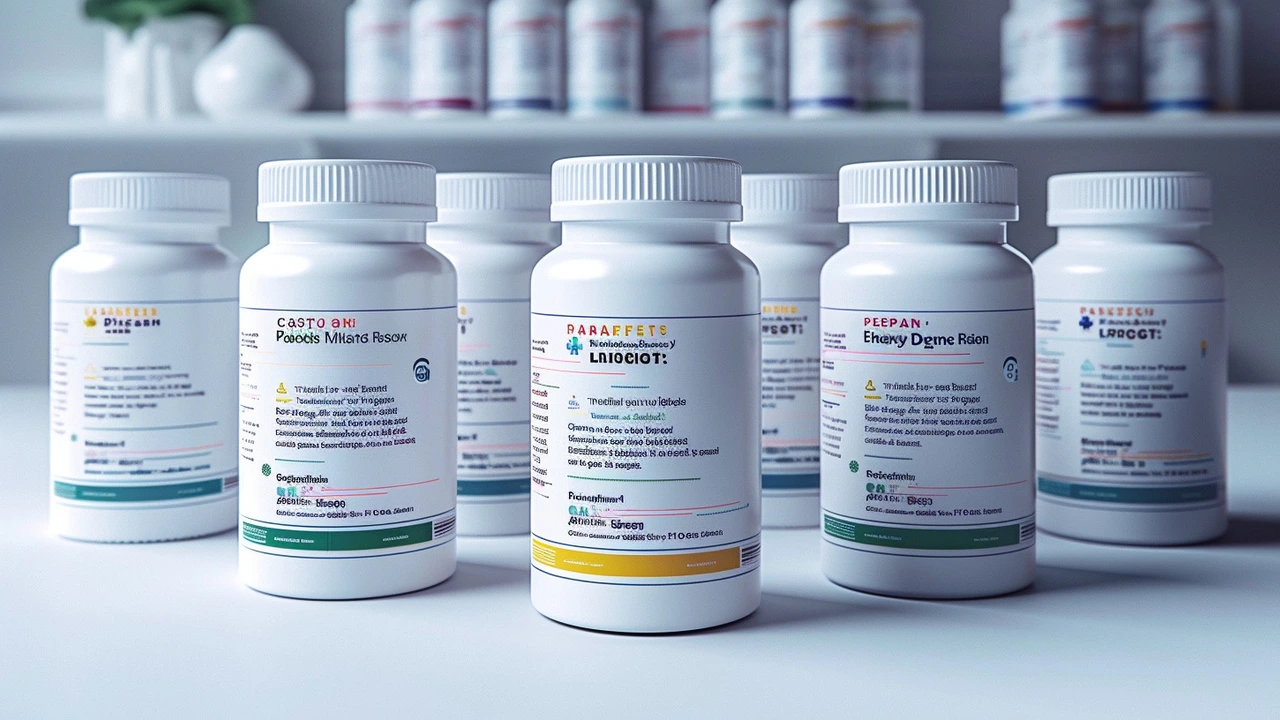Bupropion Hydrochloride — What It Does and How to Use It
Thinking about bupropion? You’re not alone. Bupropion hydrochloride is a commonly prescribed medicine for depression and for helping people quit smoking. It’s also used off‑label for things like ADHD and certain cases of sexual side effects from other antidepressants. This page gives straightforward, practical facts so you can talk with your doctor or pharmacist with confidence.
What bupropion is and how it works
Bupropion is an antidepressant that affects brain chemicals involved in mood and motivation — mainly dopamine and norepinephrine. You’ll see it sold under brand names like Wellbutrin (SR, XL) and Zyban (for smoking cessation). It’s different from SSRIs because it’s less likely to cause sexual side effects and may boost energy and focus for some people.
It comes in immediate‑release, sustained‑release (SR), and extended‑release (XL) forms. Dosing and timing matter: SR and XL are made to give steady levels through the day, while immediate‑release needs more frequent dosing. Your prescriber will pick the version that fits your needs and daily routine.
Safety, common side effects, and practical tips
Most people tolerate bupropion well, but expect some side effects early on: dry mouth, trouble sleeping, jitteriness, and headache are common. It can raise blood pressure in some patients, so routine monitoring is a good idea, especially if you already have high blood pressure.
One key risk: bupropion can lower the seizure threshold. That means it’s not recommended if you have a history of seizures, active eating disorders (because of seizure risk with severe calorie restriction), or certain kinds of brain injury. Your doctor will screen for these risks before prescribing it.
Drug interactions matter. Avoid combining bupropion with MAO inhibitors or large doses of other stimulants unless your provider closely supervises it. Alcohol can increase seizure risk and worsen some side effects, so be honest about drinking habits when you discuss treatment.
How long until it works? Some people notice improved energy or concentration within 1–2 weeks; mood benefits often take 4–6 weeks. Don’t stop suddenly — your doctor may taper your dose to avoid withdrawal effects or mood changes.
Pregnancy and breastfeeding decisions should be personalized. If you’re pregnant, planning pregnancy, or breastfeeding, talk with your clinician about risks and benefits; many providers weigh the effects of untreated depression against medication risks.
Want more practical reading? Check related guides on alternatives to Wellbutrin, how to safely buy meds online, and real‑world tips for managing side effects. If something feels off after starting bupropion — new or worse mood changes, unusual symptoms, or seizure activity — contact your prescriber or seek urgent care.
Use this info to have a focused conversation with your healthcare team. Clear questions to ask: Which formulation do I need? How soon will I feel better? What side effects should I watch for? How will we monitor blood pressure and mood? Good questions lead to better treatment choices.

Camber Pharmaceuticals Releases Generic Wellbutrin SR: A New Frontier in Depression Management
Camber Pharmaceuticals Inc. introduces Camber SR, a generic version of Wellbutrin SR for treating major depressive disorder. Available in various strengths and bottle counts, it provides a cost-effective alternative for patients.
read more




